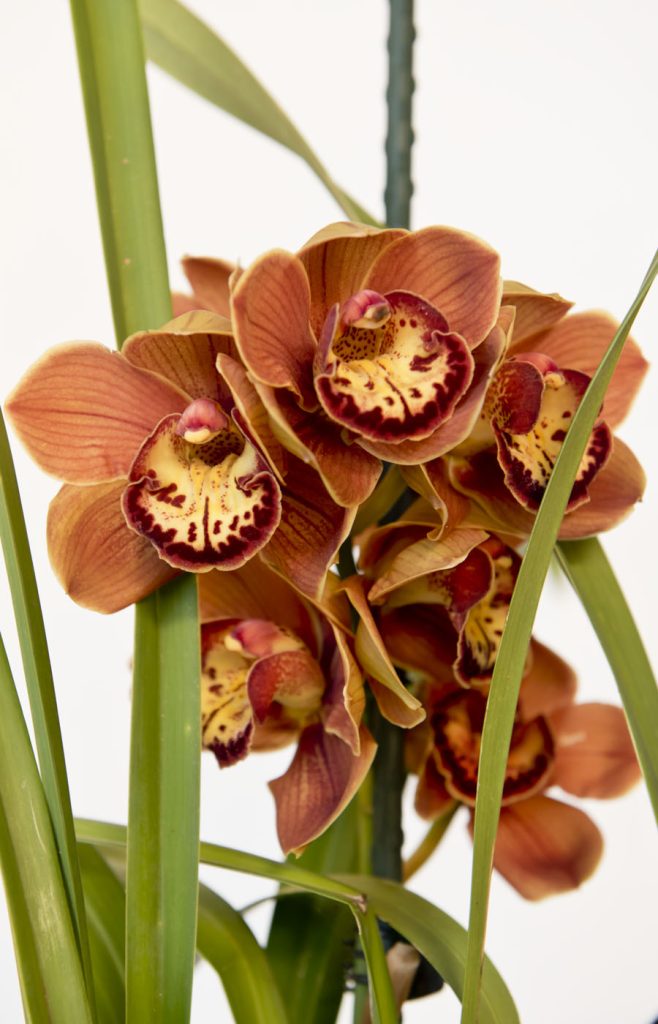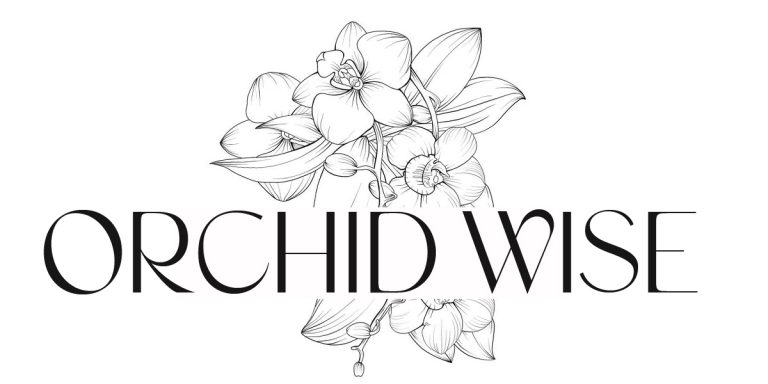All cymbidium orchids have a name. And the naming of orchids is known as ‘Nomenclature’. The Royal Horticultural Society (RHS) in the United Kingdom is responsible for maintaining the register of all orchid species and hybrid registrations.
Even a plant without a label, has a name, but it is not known by the plant owner. Plants with unknown names are often referred to as ‘unknown’ or ‘noid’.
What is ‘Grex’?

Humans have a family name and likewise with Cymbidiums. The family name of an orchid is referred to as its grex. Humans have a given name (often referred to as our Christian name). And orchids can also have a given name, known as a varietal name. Orchids are different in that the progeny from two parent plants cannot have the same family name (grex), as either of the parents, or any other previously named orchid.
As an example, my family name is Olsen. My wife’s maiden name is Mangan and our children are Olsen’s. If we were orchids, we would have needed to register a new family name (grex) for our children. But our new family name could not already be in use. The registration of the family name is controlled by the Royal Horticultural Society (RHS). Again, if we were orchids, my wife (Carly) and I could have applied to the RHS, for a family name for our children. Without doing this, they would forever just be known as (Mangan x Olsen). The mother’s name comes first. In orchids, we call her the pod parent. I would be the pollen parent.
Varietal Names
Varietal names are used to identify each plant, within a grex.
Varietal names are not registered anywhere, if one is not careful it is therefore possible to have many different plants with the same name (grex). It is common to give an outstanding new seedling a varietal name of a loved family member, for example ‘Carly’. Unfortunately for the orchid movement ‘Carly’ could be used by many growers as the varietal name for their special orchid.
Many plants are not regarded as good enough to be given a varietal name. They are just known by their family name, for example Valley Splash. The grex, Valley Splash, was registered with the RHS in 1991. Its parents were Vivacious (pod parent) and Hazel Tyers (pollen parent). The exact particular crossing was Vivacious ‘Banana Split’ x Hazel Tyers ‘Tinsell’.
Any progeny from a reverse crossing, that is Hazel Tyers x Vivacious, are all still automatically called Valley Splash. Also, if the crossing is repeated later, using siblings of either parents, for example Vivacious ‘Superb White’ instead of Vivacious ‘Banana Split’, or Hazel Tyers ‘Tia Maria’ instead of Hazel Tyers ‘Tinsell’, all the progeny of this later mating would still all be Valley Splash.

Many seedlings from one mating are usually produced and flowered in order to get a wide range of results, to pick the best from. Many are not considered good enough to warrant giving a varietal name. Some growers, name all their seedlings, for example (Vivacious x Hazel Tyers), Number 1, Number 2 etc until they flower. When they flower, they might call the best one (perhaps previously Number 3), as ‘Carly’. The second best might be renamed ‘Edith’, or some other chosen name. Remaining plants might just be known as their family name, with no variety, or retain ‘Number 1’, ‘Number 2’ etc.
Therefore, the whole name of these two plants would be Valley Splash ‘Carly’, and Valley Splash ‘Edith’.
The grex of Cymbidium hybrid orchids is always written in lower case with a capital, for example Valley Splash. However, the grex of Cymbidium species orchid names are always written in all lower case, for example lowianum (not Lowianum). The grex is always written first and the varietal name follows, and should be in quotation marks.
How important is a Name?
The maintaining of correct names on orchids is very important.
It is even more important if the plants are to be used for breeding. Not knowing a plant’s correct name will mean a new crossing cannot be registered with the RHS when the time comes. Knowing a plant’s correct name makes the plant instantly more valuable and desirable; both in monetary value, and also to a keen enthusiast, grower and a breeder.
Naturally, some plants grow better in certain conditions, therefore knowing all your plants can assist in providing the correct care at the right time, and using growing comments from other growers about known plants is very useful.
In addition to the RHS, websites like orchidroots.com are great resources to provide parentage and lineage data as well as registered immediate offspring from a crossing.
Take good care of your plant labels. Ensure they are not lost or mixed up. All of my plants are named and I am mortified whenever I think I have lost a tag! Consider making lists of your plants. Computer databases are very useful, easy to produce, and an invaluable record of data in the long run.
